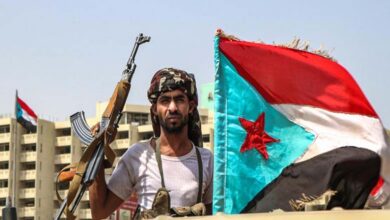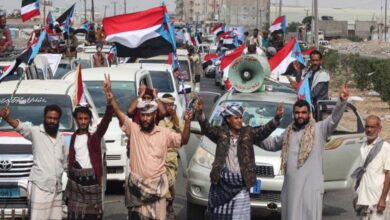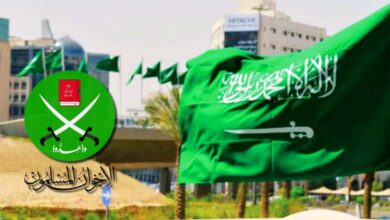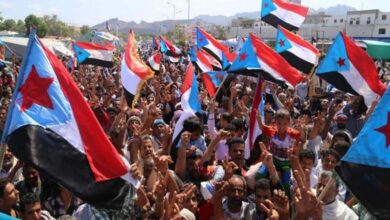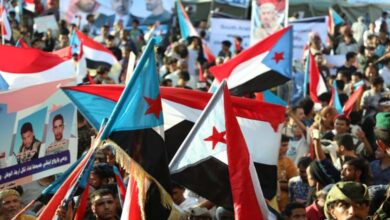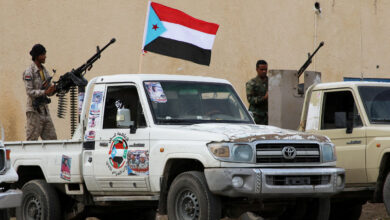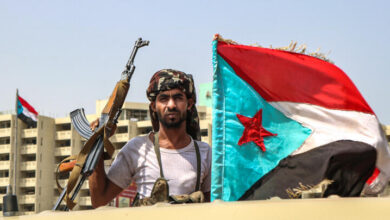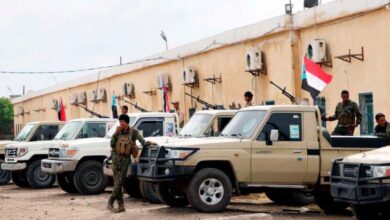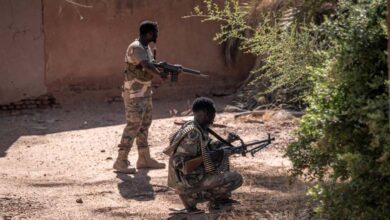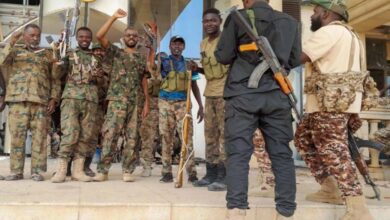The Sudanese Army Committed Horrific Field Executions in Khartoum
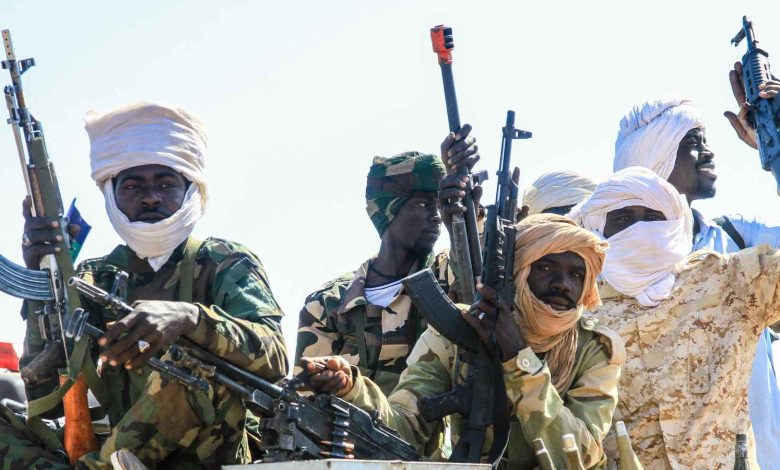
In a video that has sparked widespread controversy and outrage, individuals in military attire are seen tying up a young Sudanese man with ropes before throwing him off the Hantoub Bridge over the Blue Nile, which connects the eastern and western parts of Wad Madani in Al-Jazirah State.
-
Human Rights Organizations: Sudanese Army Involved in Summary Executions That Have Claimed Dozens of Civilian Lives
-
Under the Muslim Brotherhood’s Sponsorship Purges Cracks and Serious Violations within the Sudanese Army
The video ignited a wave of anger among political and human rights circles in Sudan, with accusations directed at armed groups affiliated with the Sudanese army for carrying out ethnic-based executions in Wad Madani and its surroundings.
According to Reuters, one of the men appearing in the footage was wearing a vest bearing the insignia of the Al-Baraa bin Malik Battalion, a militia allied with the army. The agency stated that it could not verify the exact date of the incident.
There is significant debate surrounding the Al-Baraa bin Malik Battalion, led by Al-Misbah Abu Zeid, as politicians and activists link it to the Islamic Movement, which serves as the ideological backbone of the ousted president Omar al-Bashir’s regime.
-
A report highlights the crimes and atrocities committed in Sudanese Army and Muslim Brotherhood prisons
-
Sudanese Army’s Military Gains Undermine Chances of a Peaceful Resolution to the Crisis
Children and Women Killed
In the same context, a Sudanese journalist reported that scenes of chaos and killings have engulfed Wad Madani since the army and its allied forces entered the city on Saturday.
He confirmed that “according to widely circulated videos and consecutive statements from several human rights organizations and political groups, Wad Madani and the surrounding Kanabi areas—inhabited by agricultural workers from Darfurian ethnic groups—are witnessing widespread killings carried out by army-affiliated groups.”
He pointed to “preliminary reports” indicating that since Saturday and up until the preparation of this report, “approximately 146 civilians have been killed, including a large number of children, women, and the elderly.”
-
The Sudanese Army and the Use of Chemical Weapons: Recent War Violations and Humanitarian Impact
-
Sudanese Army Violations Against Civilians: War Crimes Threatening the Country’s Future
The recent events have fueled ongoing fears of large-scale revenge attacks based on political and ethnic affiliations, which have continued against unarmed civilians in various parts of Sudan since the outbreak of fighting between the army and the Rapid Support Forces in mid-April 2023.
According to the same journalist, it is widely believed that “a significant portion of those being targeted in the current executions belong to the same ethnic groups as the leaders of the Sudan Liberation Movement, Minni Arko Minnawi, and the Justice and Equality Movement, Gibril Ibrahim, both of whom are allied with the army.”
He cited sources indicating that “several members of these two movements abroad have threatened to defect if no strong stance is taken,” accusing their leaders of “bowing to the significant privileges they receive from the government in Port Sudan.”
-
The Sudanese Army’s Reliance on Mercenaries and Foreign Forces: The Collapse of Local Military Capabilities
-
Juba Opens Fire on the Sudanese Army and Its Islamist Militias… Details
On the other hand, human rights organizations, such as the Emergency Lawyers Group and the Sudanese Observatory for Human Rights, along with political entities, including the “Taqaddum” Coordination, which encompasses more than 100 political and civil groups, have issued statements condemning the executions and demanding an urgent international investigation.
These groups accused the army and its allied militias of “committing a massacre” that has affected a wide segment of citizens in Al-Jazirah State.
The Sudanese Observatory for Human Rights stated that “the severe violations committed constitute crimes against humanity.”
Human rights and political groups attributed these crimes to “the spread of hate speech.”
-
Testimonies Reveal New Violations by the Sudanese Army in the Country
-
How the Muslim Brotherhood Reshaped the Sudanese Army
“Isolated Incidents”
Commenting on the escalating violations in Al-Jazirah State, the Sudanese army issued a statement claiming that the killings were individual acts carried out by personnel without directives from the top leadership.
Army spokesman Nabil Abdullah affirmed that the armed forces are committed to international law in their fight against the Rapid Support Forces.
Meanwhile, Sudan’s Foreign Ministry stated in an official announcement on Wednesday that the attack and killing of civilians in the “Kombo Tayba” area of Al-Jazirah State, following the army’s recapture of Wad Madani, “will be thoroughly investigated, and those responsible will be held accountable.”
-
Dindar: Tribal Conflict Turns into an Unforgivable Crime by the Sudanese Army
-
Massacre in “Dindar”: The Sudanese Army and the Tragedy of Ethnic Cleansing Targeting Civilians
The ministry’s statement also emphasized that “strict high-level directives have been issued to security agencies to take all necessary measures to ensure that such incidents are not repeated and to take decisive action against any signs of similar occurrences to eliminate them at their roots.”
In previous media statements, Minister of Information and government spokesman in Port Sudan, Khalid Al-Ayser, said that the state “does not punish citizens based on rumors and suspicions or without fair trials.”
-
From Infrastructure Destruction to Arms Smuggling: Analyzing the Sudanese Army’s Manipulation of Facts
-
Sudanese Army’s Statement on Shambat Bridge Destruction: A Desperate Attempt to Polish a Tarnished Image
“Execution in Front of Children”
Last week, a video circulated on social media showing the “execution by gunfire” of a civilian-clothed individual by soldiers, whom human rights activists claimed belonged to the Sudanese army. The execution reportedly took place in a neighborhood of Omdurman, northwest of the capital, Khartoum.
According to the widely shared footage, which has not been independently verified, the execution occurred in front of the victim’s children, despite his repeated denials to the soldiers restraining him of any ties to any militant groups.
-
Demands for the Dissolution of the Sudanese Army and Pursuit of the Muslim Brotherhood
-
Weapon supplies to the Sudanese army continue from abroad
However, the army ignored his pleas, with one soldier instructing his comrades to execute him, after which they fired multiple rounds at him.
In recent months, human rights organizations have documented several similar incidents in which dozens of civilians lost their lives.
A report published by “ACLED,” an organization specializing in tracking conflict zones and armed conflict data, revealed that violence against civilians in Sudan has surged by 89% in recent months.
Rihab Mubarak, a member of the Emergency Lawyers Group, has documented over a thousand violations against civilians since the outbreak of the war.
These violations include unlawful arrests and killings, as well as aerial and artillery bombardments targeting civilian neighborhoods, which are believed to be responsible for more than 80% of the war’s civilian casualties, estimated to be in the tens of thousands.
In June, a group wearing military uniforms executed a group of civilians in Gedaref, in eastern Sudan, by firing a barrage of bullets at dozens of young men, who were bound and lying on the ground. The perpetrators cheered and shouted hysterically in a chaotic scene.
-
The Flow of Weapons to the Sudanese Army from Foreign Sources… What Is Happening?
-
Experts identify reasons for the collapse of the Sudanese Army
In November, fighters executed about 15 people in the Halfaya area hours after the army entered it, accusing them of being affiliated with the Rapid Support Forces. However, youth groups in the area stated that most of those executed were civilians trapped in the conflict zone.
These incidents followed the killing of 11 people in Darfur, western Sudan, for allegedly belonging to a tribe that sided with one of the warring factions. Before this, three young civilians were beheaded in the city of El-Obeid in North Kordofan, also on charges of supporting the Rapid Support Forces.
Numerous other killings have occurred in various parts of Khartoum, Al-Jazirah, the Nile River State, and Northern State, believed to be based on ethnic and political affiliations.


